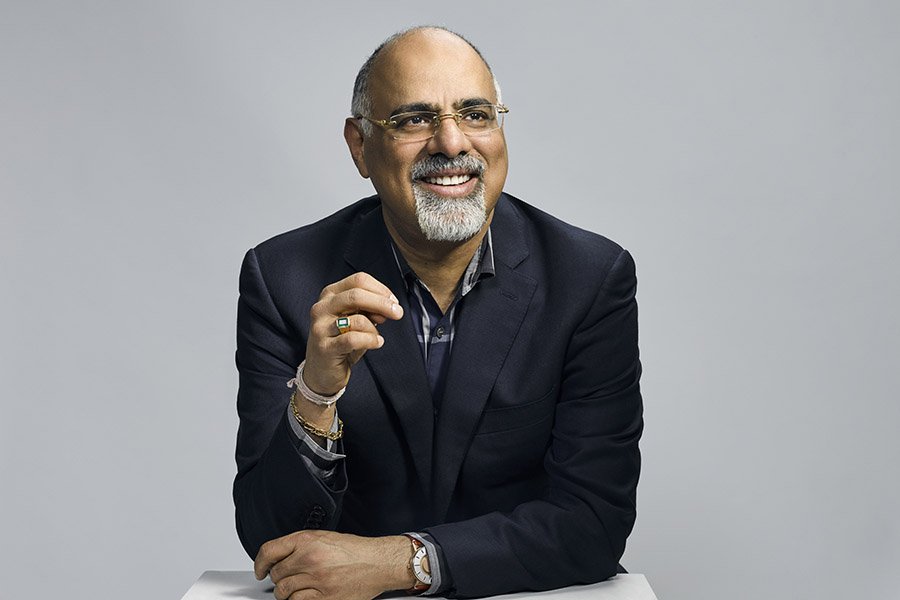So, what should we know about the consumers of tomorrow, and what messages will resonate with them? One of the biggest cultural transformations happening around the world is that consumers aren’t expecting brands to sell them stuff anymore.
Instead, customers now expect brands to create societal good. They want companies to be honest, transparent, operate with integrity, and not take them for a ride. In addition, a new generation of young people from around the globe are more socially conscious and demanding change like never before. These people are willing to pay a premium to companies that behave responsibly, and marketers can no longer focus solely on product message and market share. Like a double-edged sword, technology can disrupt people’s lives for better or worse.
The next big part of the industrial revolution is artificial intelligence. If applied to the medical sciences, it’s a brilliant tool; on the other hand, it can be terrible if intrinsic biases from the past creep into AI and unleash a Frankenstein scenario into the marketplace. We’re faced with a long list of new technologies today: virtual reality, blockchains, 3D printing, 5G, drones, autonomous driving vehicles, the Internet of Things, Bluetooth speakers, and wearables. All these things have the potential to disrupt people’s lives in good and bad ways in the very near future.
As a business leader or brand marketer, you need to ask yourself how these millions of small innovations will affect your business and how you might adjust your strategies accordingly. The future will be so radically different that the current strategies, concepts, and frameworks of selling our brands will no longer work.
We’re currently on the cusp of the fourth and fifth paradigm of the technology revolution. Each one was ushered in by disruptive technologies. For example, the third paradigm was ushered in by social media platforms and connected mobile devices that have changed our lives. The fourth paradigm has built on the third by adding location-based marketing, social media marketing, and influencer marketing to our devices. Unfortunately, this has been at the expense of user privacy, and many consumers now feel digitally harassed and are turning away from these marketing techniques.
The solution? Quantum marketing. Business leaders must now completely reimagine marketing and reinvent it for the immediate future. Leaders need to become true general managers with a command of data, finance, PR, and other disciplines to transform marketing’s ecosystem. Quantum marketing will demand that business leaders adopt a new mindset and leave behind dated models, such as loyalty. Today’s consumers are fundamentally disloyal, so brands need to end the habit of spending hundreds of millions of dollars on customer loyalty programs. Loyalty must instead evolve from an era of winning and keeping consumers by winning each interaction. The brands that leaders build now must embrace consumers rather than the converse, turning old marketing methods upside down.
Last year, a study in the U.K. asked participants who were married or in a relationship if they would ever consider cheating on their partner. Seventy percent said they already had, and a large percentage of the remainder said they would if they knew they wouldn’t be caught. So, as marketers, are we foolish to believe that customers will be loyal to our brands and loyalty programs when their personal relationships — with serious levels of explicit commitment — are not solidly based on loyalty? Harping on customers from an elevated platform about how they should be loyal to your brand is not a good strategy.
I travel extensively as a senior executive of Mastercard and belong to loyalty and reward programs of almost every major airline. Is that real loyalty? No, it is simply a great way to get some cheap or free rewards. Real brand loyalty is something else.
We’ve seen the rise of chief experience officers in many companies who create seamless and unforgettable experiences for customers. This is a relatively new skill that will become critical to retaining customers. Dumping marketing messages onto consumers without pausing to consider how they will take it is a grave mistake.
To get people to love your brand, you need to adopt a social purpose. This is not something you can easily fake, and consumers will recognize the authenticity. It’s not about grabbing a short-term politically correct issue to get consumer attention for a few weeks either. Consumers are not stupid and will quickly see through your act. So instead of pursuing profits as your purpose, pursue social purpose. This should become your North Star, and the profits will follow.
Raja Rajamannar is the chief marketing officer and president of the healthcare division of Mastercard. He is responsible for successfully leading the company’s marketing transformation, including the integration of the marketing and communication functions.




































